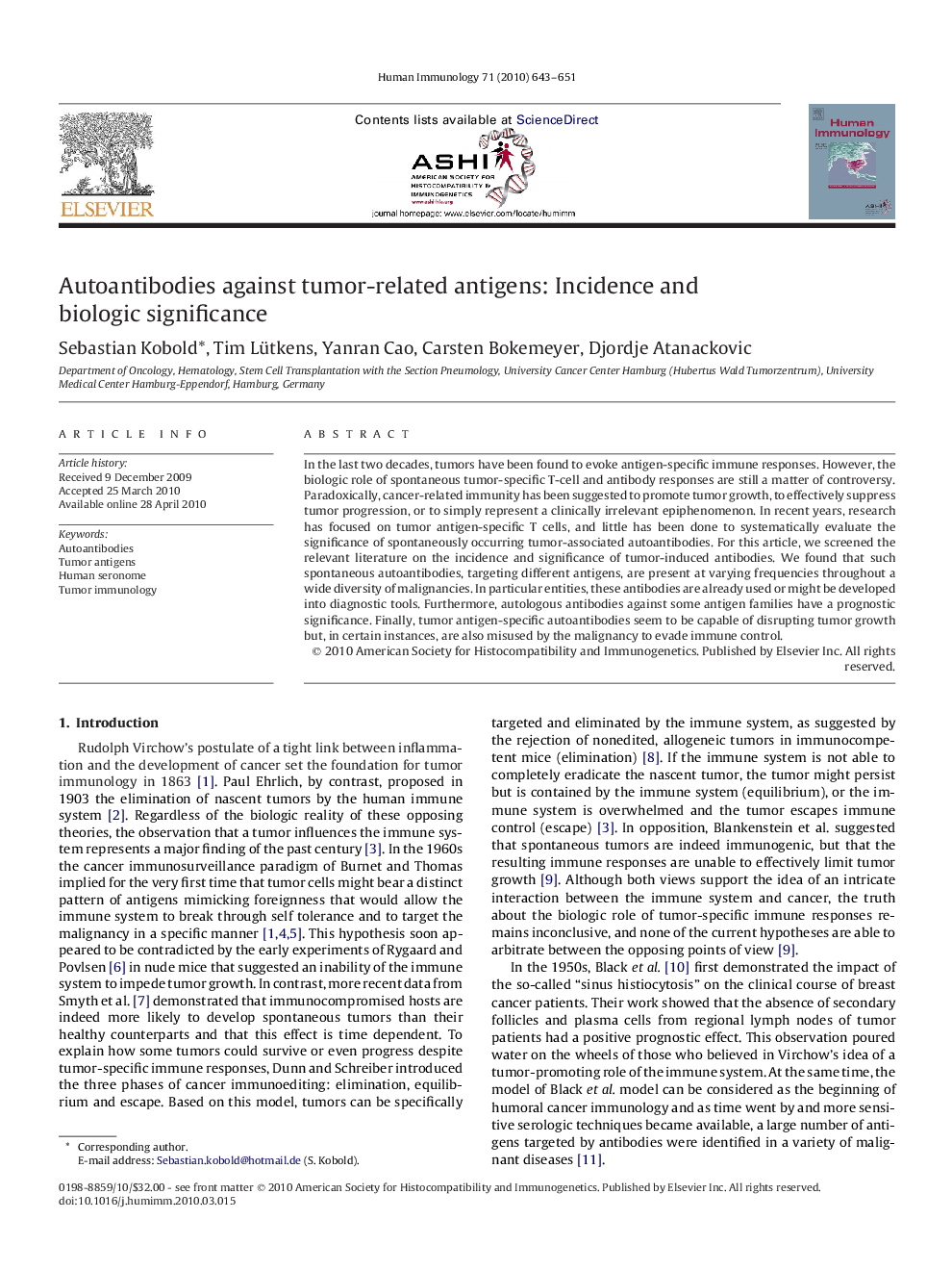| Article ID | Journal | Published Year | Pages | File Type |
|---|---|---|---|---|
| 3351144 | Human Immunology | 2010 | 9 Pages |
In the last two decades, tumors have been found to evoke antigen-specific immune responses. However, the biologic role of spontaneous tumor-specific T-cell and antibody responses are still a matter of controversy. Paradoxically, cancer-related immunity has been suggested to promote tumor growth, to effectively suppress tumor progression, or to simply represent a clinically irrelevant epiphenomenon. In recent years, research has focused on tumor antigen-specific T cells, and little has been done to systematically evaluate the significance of spontaneously occurring tumor-associated autoantibodies. For this article, we screened the relevant literature on the incidence and significance of tumor-induced antibodies. We found that such spontaneous autoantibodies, targeting different antigens, are present at varying frequencies throughout a wide diversity of malignancies. In particular entities, these antibodies are already used or might be developed into diagnostic tools. Furthermore, autologous antibodies against some antigen families have a prognostic significance. Finally, tumor antigen-specific autoantibodies seem to be capable of disrupting tumor growth but, in certain instances, are also misused by the malignancy to evade immune control.
